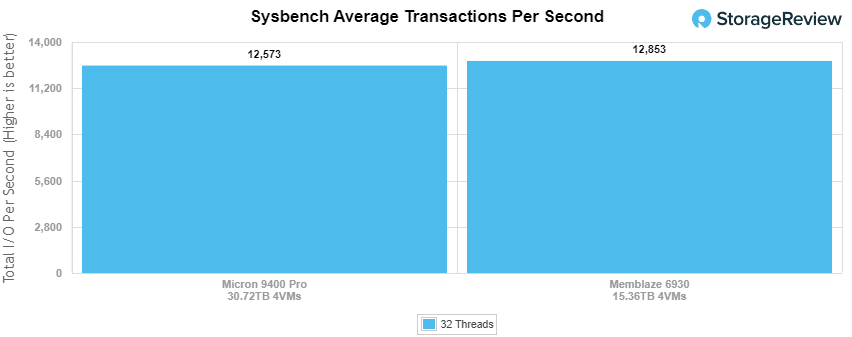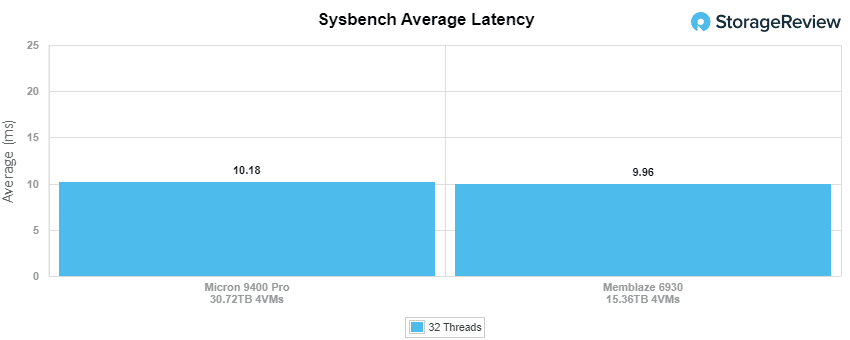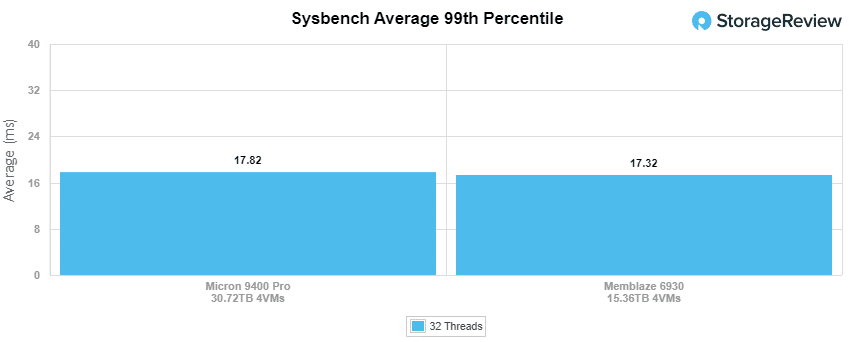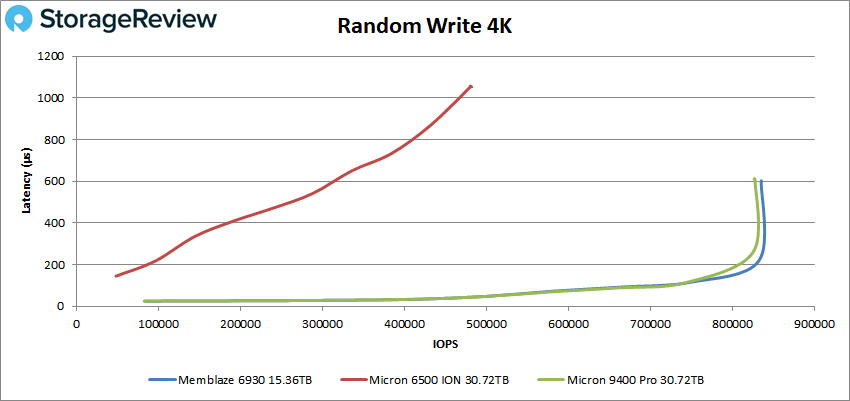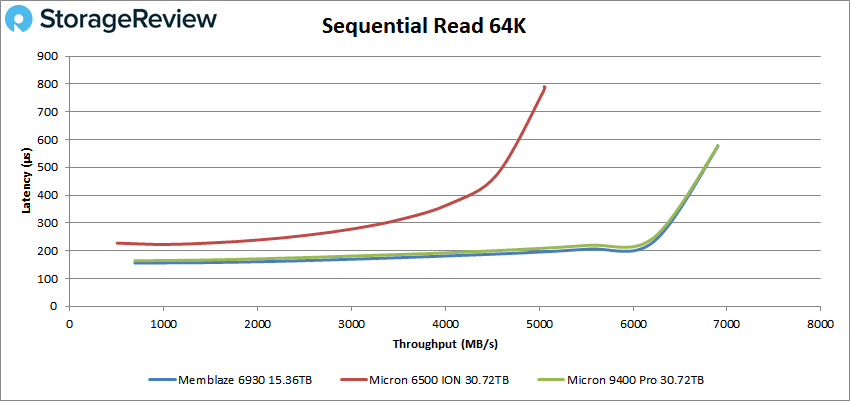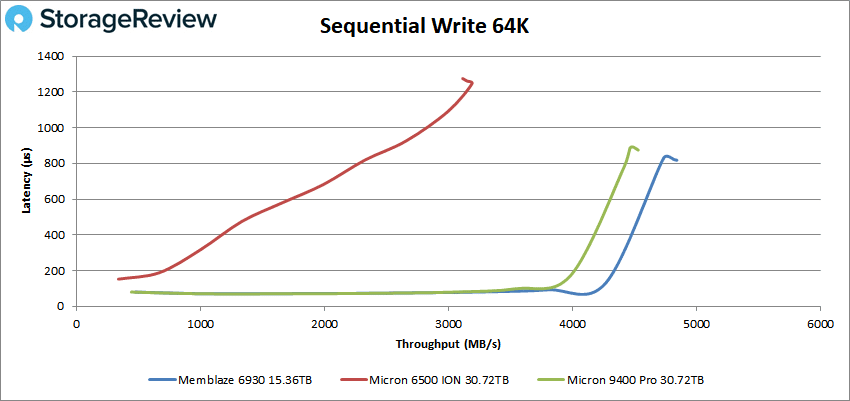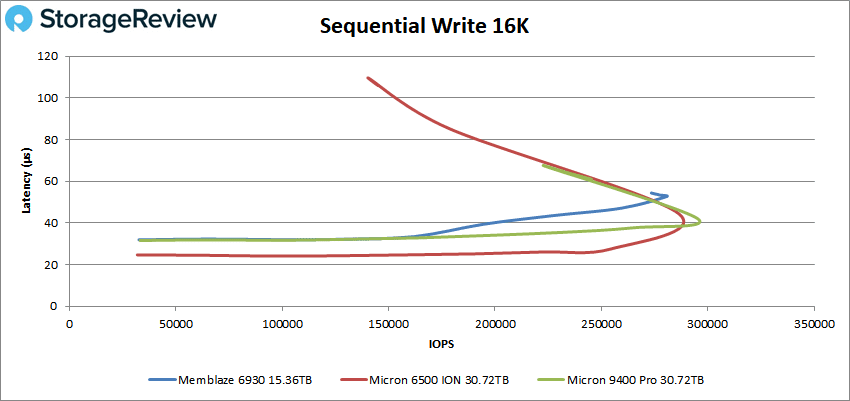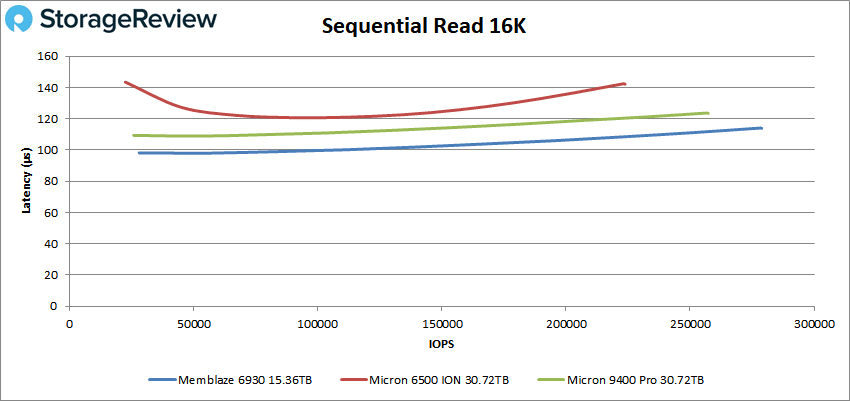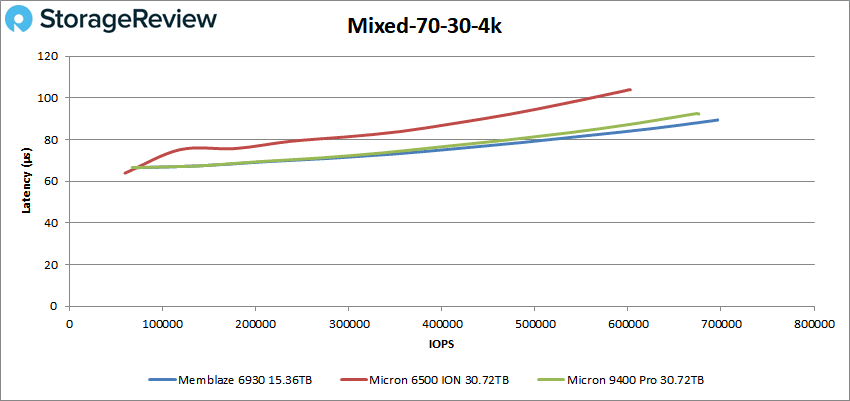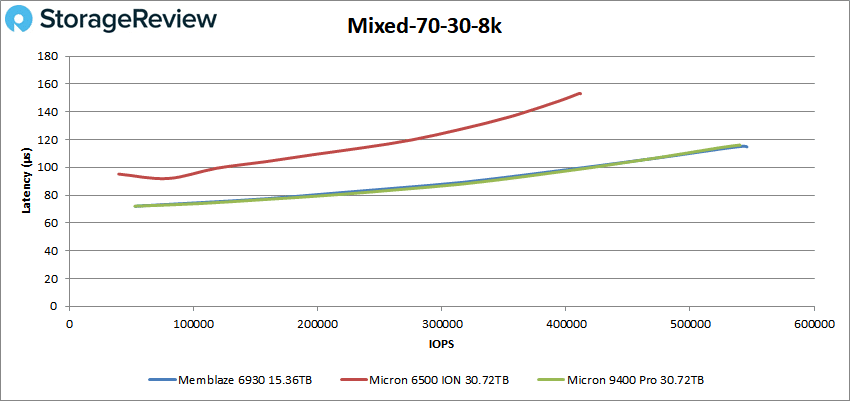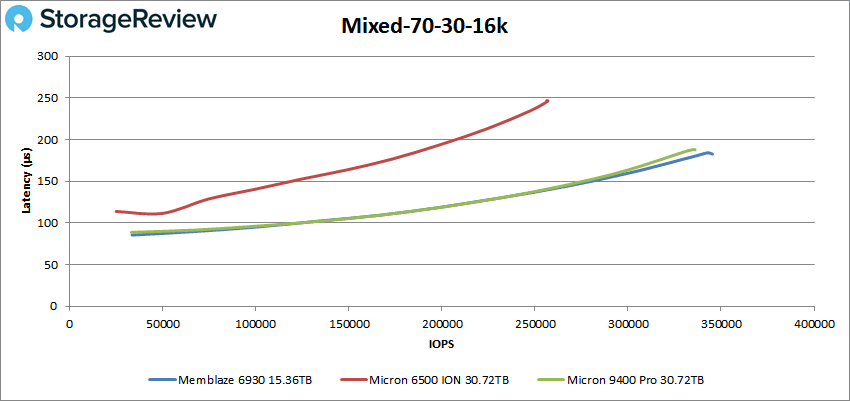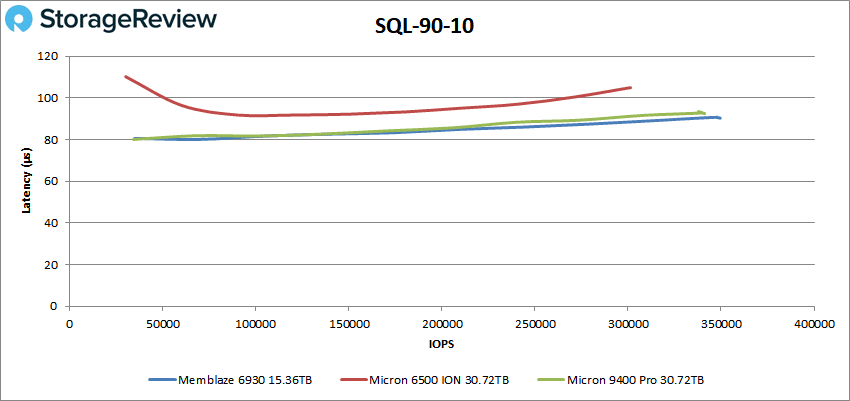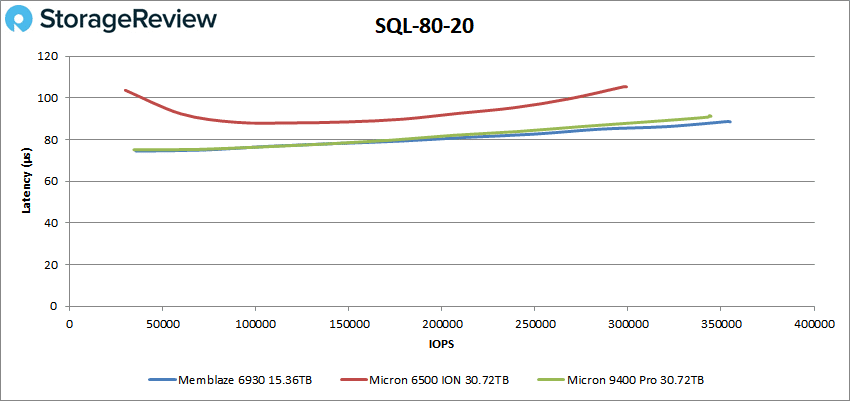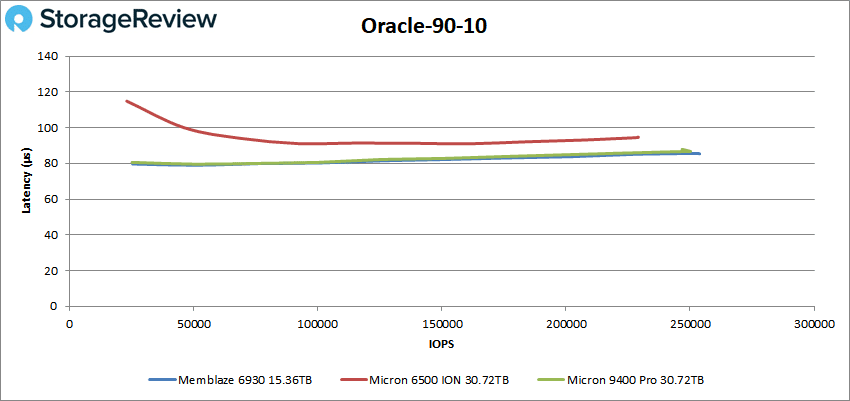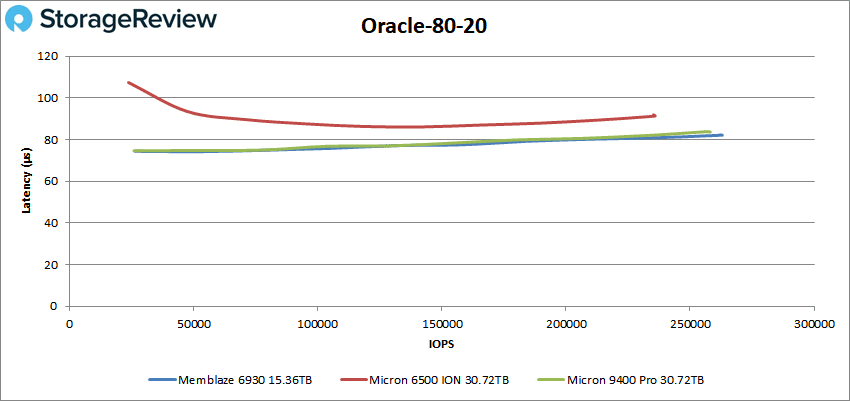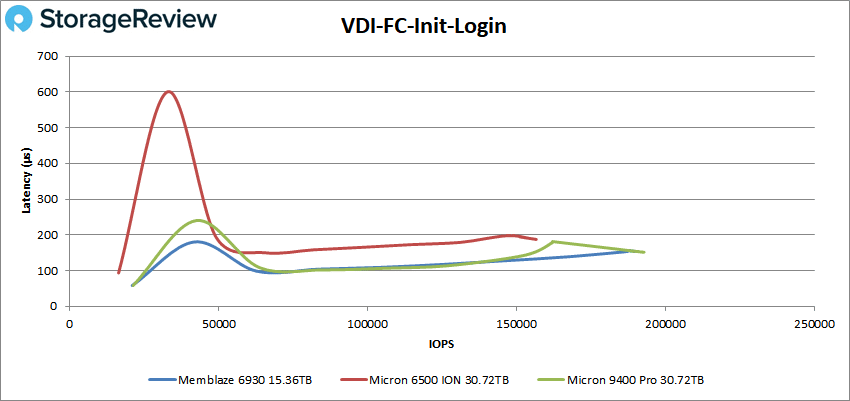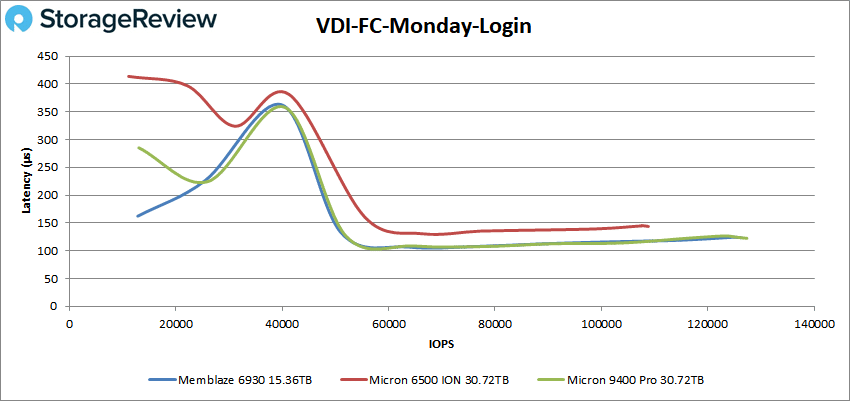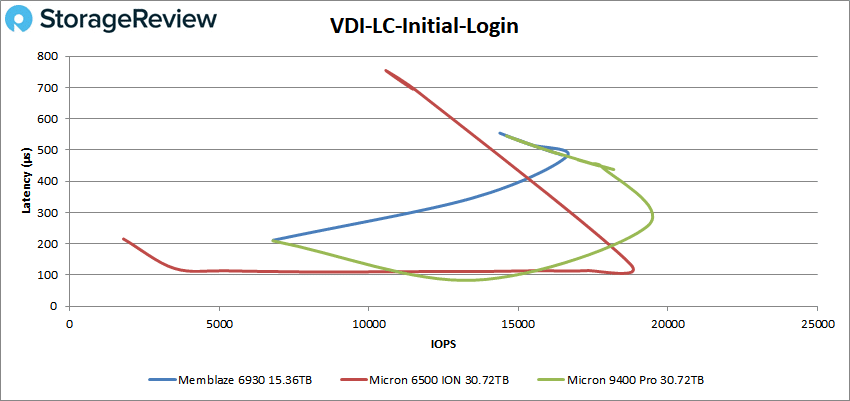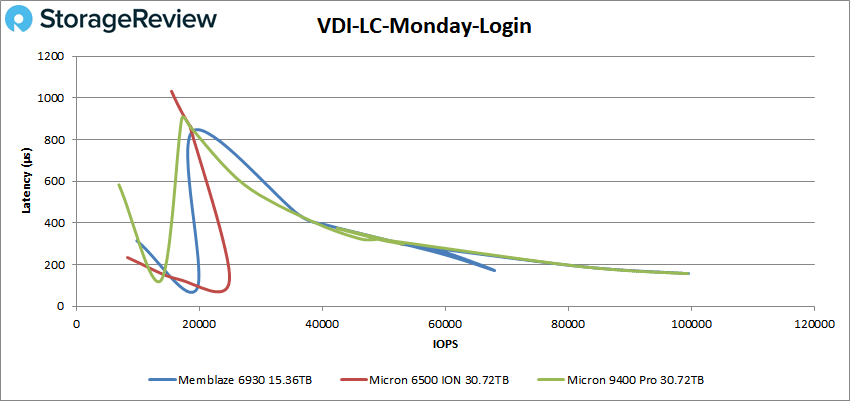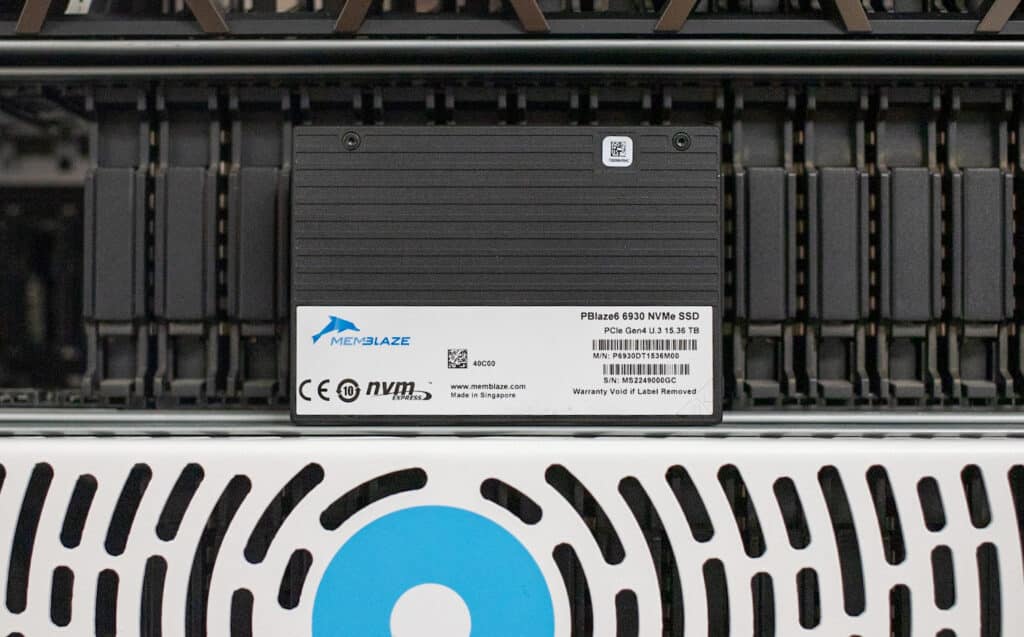The Memblaze PBlaze6 6930 is a data center NVMe SSD featuring the PCIe Gen4 interface. This series is founded on Memblaze’s self-developed Unified Framework Platform, reinforcing its place in the innovative landscape. The 6930 strikes a balance between versatility and power, designed to cater to a wide range of applications in modern data centers, especially when it comes to ensuring QoS and performance consistency for IO access.
The Memblaze PBlaze6 6930 is a data center NVMe SSD featuring the PCIe Gen4 interface. This series is founded on Memblaze’s self-developed Unified Framework Platform, reinforcing its place in the innovative landscape. The 6930 strikes a balance between versatility and power, designed to cater to a wide range of applications in modern data centers, especially when it comes to ensuring QoS and performance consistency for IO access.
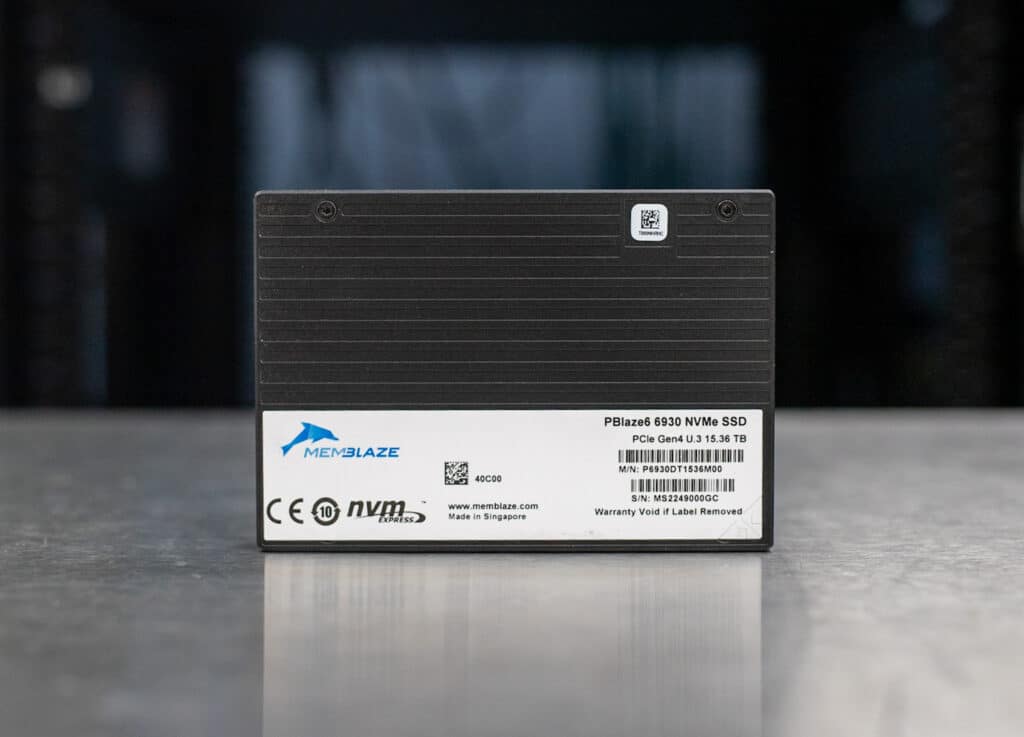
Memblaze PBlaze6: A Growing Brand in the Storage Industry
Its predecessor, the Memblaze PBlaze D6920, was noted for being at or near the top in every one of our benchmarking tests, making a significant statement in the storage industry, and earning our Editor’s Choice award. Not everyone knows the Memblaze name, as much of their US distribution is through Micron-branded SSDs; however, those following our Memblaze reviews know that its benchmarking performance is often one of the best that’s hit our labs in the past. The PBlaze6 6930 series is another prime example of this.
Built on 176-layer TLC NAND and optimized by Memblaze-developed MemSpeed 4.0 technology, the 6930 guarantees the high consistency required by enterprise applications, setting new benchmarks in IO performance and power consumption ratio. The 6930 functions as a mainstream drive, unlike its counterpart, the D6936, which focuses more on endurance and sustained random writes. The products provide ample storage options, with models that come in capacities of 7.68TB, 15.36TB, and 30.72TB.
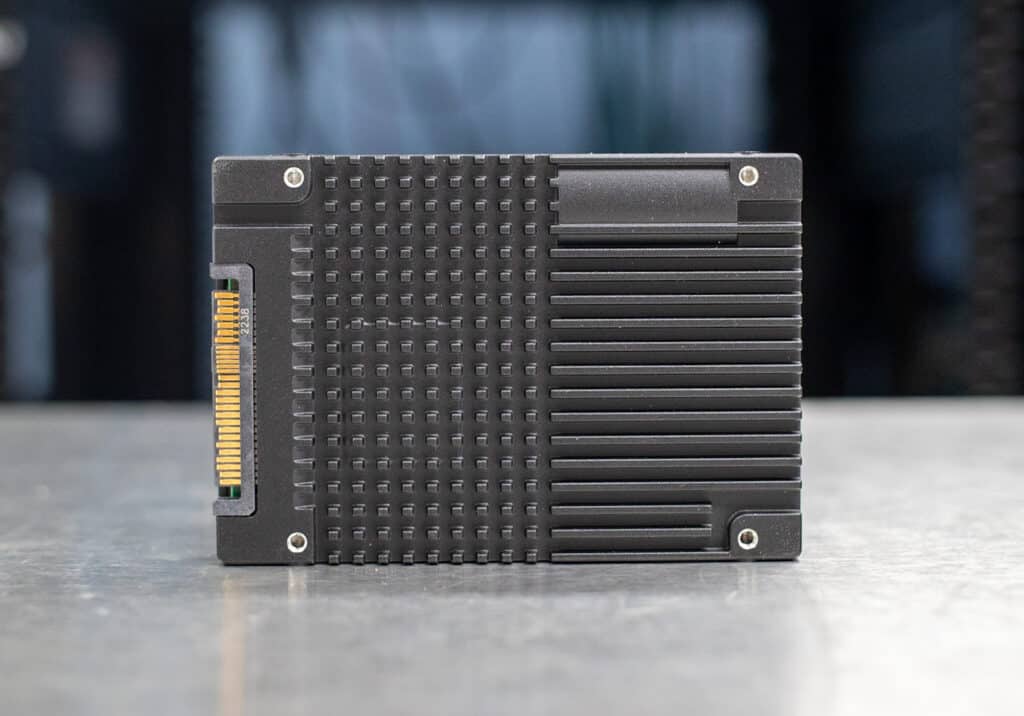
Memblaze PBlaze6 6930 Performance Profile and Reliability
This drive is a highly efficient option for data transfers thanks to its sequential read speeds of up to 7.1GB/s for 128KB data and sequential write speeds of 7.0GB/s. The built-in scheduling mechanism helps promote quality service in every operation and boosts performance even further.
The 6930 is capable of providing consistent random read speeds of up to 1,600K IOPS and sustained random write rates of 420K IOPS, thus making it well-suited for managing challenging workloads. Additionally, the drive’s lifetime endurance of 1.5 DWPD ensures reliability and durability for most enterprise-grade applications.
The Memblaze PBlaze6 6930 is outfitted with a comprehensive set of data security features, including AES 256 Data Encryption, to ensure that data remains protected. In addition, the drive’s Crypto Erase feature is essential for data centers handling sensitive information, as it ensures specific data is gone forever.
The 6930 also includes Power Failure Protection, which safeguards data against unexpected power failures by ensuring that data in the cache is safely written to the storage media. Moreover, the secure boot feature verifies integrity and encryption before loading, which helps prevent potential data risks caused by unauthorized executed code.
Its seamless integration with various management tools and OS in-box drivers, coupled with unique features such as built-in scheduling mechanisms, streamlines system maintenance. This makes the Memblaze 6930 an excellent solution for data center administrators seeking high-performing, reliable storage options that cater to modern enterprise demands.
Memblaze PBlaze6 6930 Specifications
| Specification | 6930 15.36TB |
|---|---|
| User Capacity | 15.36TB |
| 128KB Sequential Read (GB/s) | 7.1 |
| 128KB Sequential Write (GB/s) | 7.0 |
| Sustained Random Read (4KB) IOPS | 1600K |
| Sustained Random Write (4KB) IOPS (Steady State) [2] | 420K |
| Lifetime Endurance [3] | 1.5 DWPD |
| Latency Read/Write (μs) [4] | 69 / 9 |
| Interface | PCIe 4.0 x 4 |
| Form Factor | 2.5-inch U.3 |
| Operating Temperature | Ambient: 0℃ to 35℃ with suggested airflow; Case: 0℃ to 77℃ |
| Uncorrectable Bit Error Rate | < 10^-17 |
| Mean Time Between Failures | 2 million hours |
| Protocol | NVMe 1.4 |
| NAND Flash Memory | 176L 3D TLC NAND |
| Operation System | RHEL, SLES, CentOS, Ubuntu, Windows Server, VMware ESXi |
| Power Consumption | < 25 Watt |
| Basic Feature Support | Power Failure Protection, Hot Pluggable, Full Data Path Protection, S.M.A.R.T, Flexible Power Management |
| Advanced Feature Support | TRIM, Multi-namespace, AES 256 Data Encryption & Crypto Erase EUI64/NGUID, Timestamp, Sanitize, Weighted Round Robin, Persistent Event Log, Firmware Upgrade without Reset, Telemetry, Secure Download, Secure Boot |
| Software Support | Open-source management tool, CLI debug tool, OS in-box driver (Easy system integration) |
Testing Background and Comparables
The StorageReview Enterprise Test Lab provides a flexible architecture for conducting benchmarks of enterprise storage devices in an environment comparable to what administrators encounter in real deployments. The Enterprise Test Lab incorporates a variety of servers, networking, power conditioning, and other network infrastructure that allows our staff to establish real-world conditions to accurately gauge performance during our reviews.
We incorporate these details about the lab environment and protocols into reviews so that IT professionals and those responsible for storage acquisition can understand the conditions under which we have achieved the following results. None of our reviews are paid for or overseen by the equipment manufacturer we are testing. Additional details about the StorageReview Enterprise Test Lab and an overview of its networking capabilities are available on those respective pages.
Comparables:
Our PCIe Gen4 Enterprise SSD reviews leverage a Lenovo ThinkSystem SR635 for application tests and synthetic benchmarks. The ThinkSystem SR635 is a well-equipped single-CPU AMD platform, offering CPU power well in excess of what’s needed to stress high-performance local storage. Synthetic tests don’t require a lot of CPU resources but still leverage the same Lenovo platform. In both cases, the intent is to showcase local storage in the best light possible that aligns with storage vendor maximum drive specs.
PCIe Gen4 Synthetic and Application Platform (Lenovo ThinkSystem SR635)
-
- 1 x AMD 7742 (2.25GHz x 64 Cores)
- 8 x 64GB DDR4-3200MHz ECC DRAM
- CentOS 7.7 1908
- ESXi 6.7u3
Sysbench Performance
The next application benchmark consists of a Percona MySQL OLTP database measured via SysBench. This test also measures average TPS (Transactions Per Second), average latency, and average 99th percentile latency.
Each Sysbench VM is configured with three vDisks: one for boot (~92GB), one with the pre-built database (~447GB), and the third for the database under test (270GB). From a system resource perspective, we configured each VM with eight vCPUs, and 60GB of DRAM and leveraged the LSI Logic SAS SCSI controller.
Sysbench Testing Configuration (per VM)
- CentOS 6.3 64-bit
- Percona XtraDB 5.5.30-rel30.1
-
- Database Tables: 100
- Database Size: 10,000,000
- Database Threads: 32
- RAM Buffer: 24G
- Test Length: 3 hours
- 2 hours preconditioning 32 threads
- 1 hour 32 threads
For the average TPS test, the Memblaze 6930 recorded 12,853.26 in our Sysbench transactional benchmark, which placed it just ahead of the Micron drive.
In average latency, the Memblaze 6930 again edged out the 9400 Pro, posting just 9.96ms.
Our worst case (99th percentile) Sysbench test sees the Memblaze with 17.315 ms, putting the drive in first place again—a hair better than the Micron drive.
VDBench Workload Analysis
When benchmarking storage devices, application testing is best, and synthetic testing comes in second. While not a perfect representation of actual workloads, synthetic tests help baseline storage devices with a repeatability factor that makes it easy to make apples-to-apples comparisons between competing solutions. These workloads offer a range of testing profiles ranging from “four corners” tests and common database transfer size tests to trace captures from different VDI environments.
All of these tests leverage the common vdBench workload generator, with a scripting engine to automate and capture results over a large compute testing cluster. This allows us to repeat the same workloads across a wide range of storage devices, including flash arrays and individual storage devices. Our testing process for these benchmarks fills the entire drive surface with data and then partitions a drive section equal to 25 percent of the drive capacity to simulate how the drive might respond to application workloads. This differs from full entropy tests, which use 100 percent of the drive and takes them into a steady state. As a result, these figures will reflect higher-sustained write speeds.
Profiles:
- 4K Random Read: 100% Read, 128 threads, 0-120% iorate
- 4K Random Write: 100% Write, 128 threads, 0-120% iorate
- 16K Sequential Read: 100% Read, 32 threads, 0-120% iorate
- 16K Sequential Write: 100% Write, 16 threads, 0-120% iorate
- 64K Sequential Read: 100% Read, 32 threads, 0-120% iorate
- 64K Sequential Write: 100% Write, 16 threads, 0-120% iorate
- 4K, 8K, and 16K 70R/30W Random Mix, 64 threads, 0-120% iorate
- Synthetic Database: SQL and Oracle
- VDI Full Clone and Linked Clone Traces
Our first VDBench test is random read 4K. The Memblaze 6930 finished at a solid 1.67 million IOPS at 301.1µs. This result places it in first once again, slightly better than the Micron 9400 Pro.
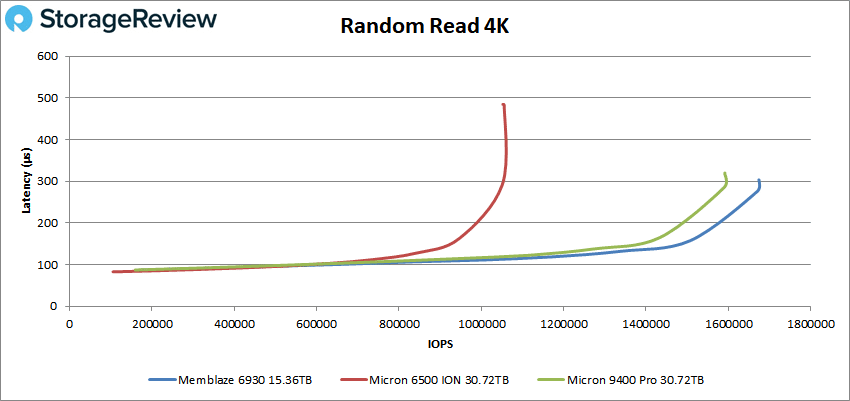
Next are our sequential tests, starting with reads. As you can see from the chart below, the Memblaze and Micron 9400 Pro drives were practically identical in performance (this time, up until the end). The 6930 had barely improved latency throughout most of the test, but both ended up peaking at 6.9GB/s at 578.2µs.
The Memblaze 6930 again had similar results as the 9400 Pro; however, it diverged noticeably after the 600K IOPS mark, eventually hitting 4.84GB/s at 817.9µs.
Next up are the 16K tests. Here, the Memblaze 6930 was the only drive that didn’t suffer a huge performance spike at the end of the test, peaking at 280K IOPS and 52.7µs.
In reads, the results were much more stable across the board. The Memblaze 6930 performed well again, achieving 278K IOPS at 113.9µs.
Now for our mixed read/write profiles, starting with 70/30 4K. Here, Memblaze 6930 again led the pack, posting a peak of 696K IOPS at 89.4µs.
In 8k, the Memblaze 6930 and Micron 9400 Pro were neck and neck throughout the test right up to the very end, with the Memblaze drive posting a leading 546K IOPS at 114.8µs.
For the 70/30 16K profile, the Memblaze drive peaked at 345K IOPS at a latency of 182.6µs for another first-place finish.
Next up is the database testing, starting with SQL Workload. The Memblaze 5550 posted a leading peak of 344K IOPS and 91.7µs.
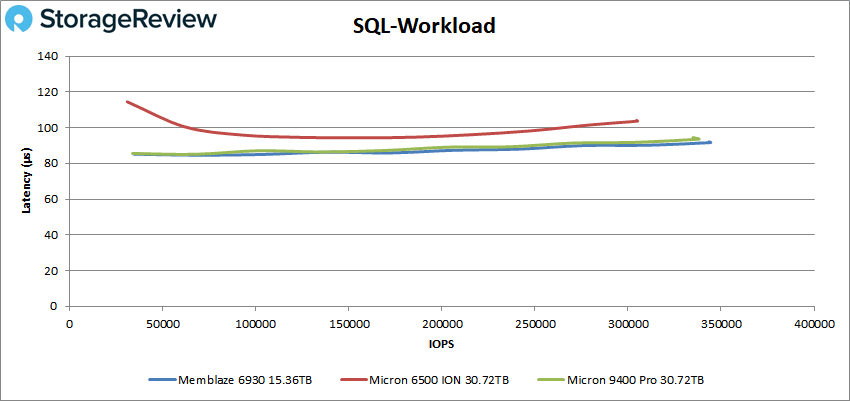
In SQL 80-20, it peaked at 355K IOPS and 88.5µs, once again putting the drive at the top of the pack.
Now for our Oracle tests. Starting with Oracle Workload, we see Memblaze finish the test in first place, with a peak of 371K IOPS and 94.8 µs in latency.
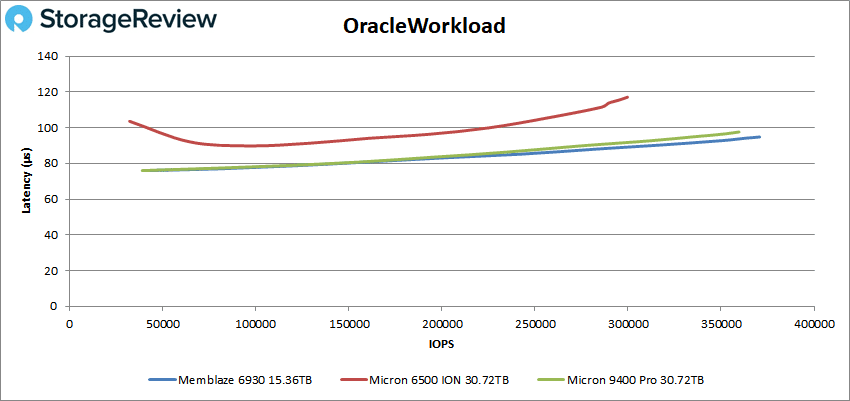
In Oracle 80-20, the Memblaze drive peaked at 263K IOPS with 82.1µs latency, with the Micron 9400 Pro trailing just behind.
Our final series of tests are VDI full clone (FC) and linked clone (LC). We start with full VDI FC boot, where the Memblaze 6930 had a first place showing with peaks of 306K IOPS at 112.2µs.
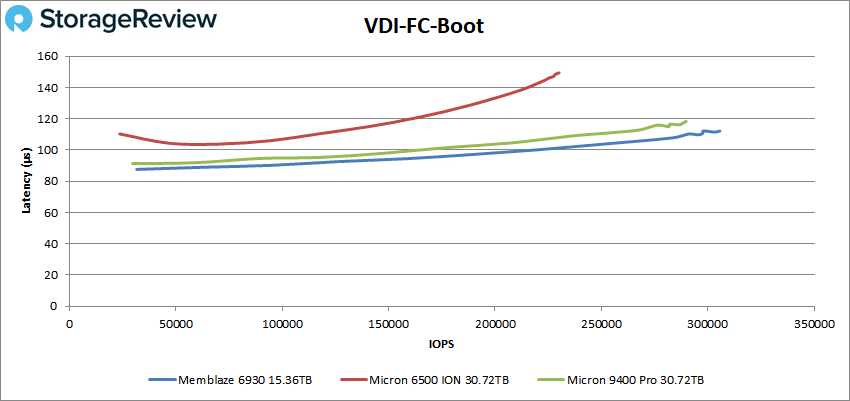
The Memblaze remained just barely behind the Micron drive again in the VDI FC Monday Login test, as it peaked at 126K IOPS and 124µs vs. 127K IOPS and 122.4µs.
Next, the VDI Linked Clone (LC) tests. First up is boot, where the Memblaze drive showed impressively stable results. Here, the drive reached a peak of 130K IOPS at 121.8µs for first place.
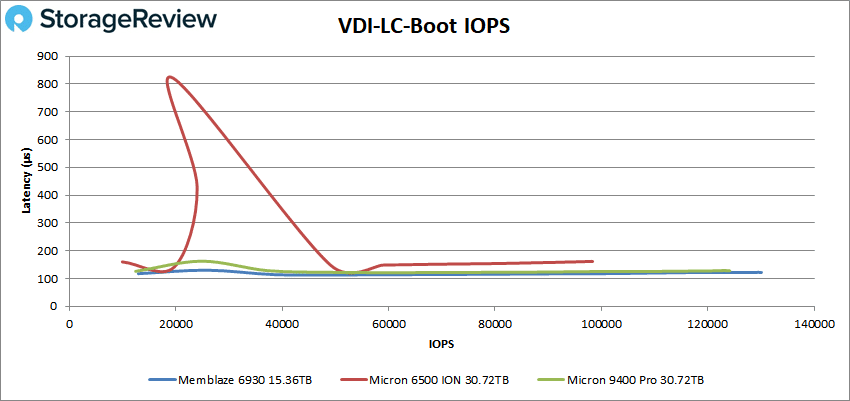
In our last test, VDI LC Monday Login, the Memblaze 6930 and Micron 7400 Pro finished identically (though you can’t see it from the chart below). Here it ended the test at 100K IOPS at 157µs.
Conclusion
Memblaze may not be the most widely known brand, but it’s certainly made a name for itself over the past few years. The 6930 presents itself as another standout data center SSD. Offering a solid combination of performance, security, and versatility, the new Memblaze SSD effectively meets the demands of modern data centers. From its impressive sequential read and write speeds to data encryption, this SSD is tailored to cater to a wide range of applications, especially those with high consistency requirements and demanding workloads.
Regarding the details of its performance, the Memblaze 6930 showed great results across all our tests. Leveraging the PCIe Gen4 interface and built on 176-layer TLC NAND, the 6930 consistently placed at the top of our benchmarking. While we are looking at two different capacities, it is interesting to note that the Memblaze drive edged out the structurally similar Micron drive in most tests.
The 6930 is an excellent solution for data center administrators looking for reliable, high-performing, and secure storage options. The Memblaze brand continues to deliver great enterprise SSDs with impressive consistency.
Engage with StorageReview
Newsletter | YouTube | Podcast iTunes/Spotify | Instagram | Twitter | TikTok | RSS Feed

